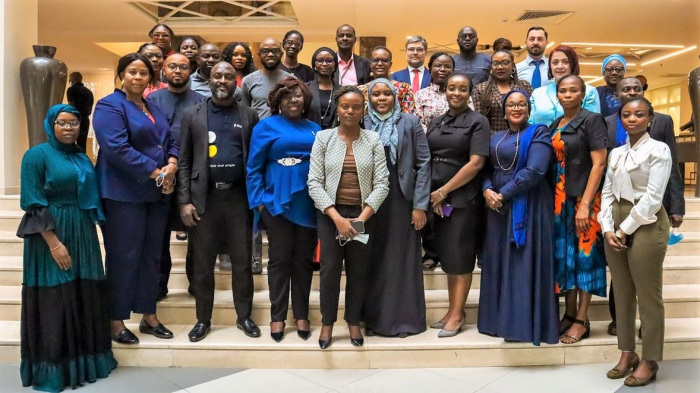
Nigeria has a gender gap of 8.4% in access to financial services. In 2016, it stood at 9.7%, meaning that only 54% of Nigerian women, compared to 63% of men, were financially included through banks or formal non-banks. Therefore, the country committed to the Denarau Action Plan (DAP)¹, which prescribes halving the global financial inclusion gender gap by 2021.
The Central Bank of Nigeria (CBN), supported by the Alliance for Financial Inclusion (AFI)², developed and launched the Framework for Advancing Women’s Financial Inclusion in Nigeria, aiming to close the gap by 2024. The Framework sets out eight strategic imperatives to systematically reduce and close the gender gap in financial inclusion. AFC was contracted to work on the imperative “Expand delivery channels to service female client’s closer to home”, which focuses on delivery channels to serve women and proposes to encourage gender balance in agent networks.
Our in-house experts Dr. Oliver Schmidt and Vladislav Nimerenco conducted a diagnostic study on agent relationships and assessed the current trends in the regulation of agent banking from selected Sub-Saharan-African countries and around the globe. The study aimed to identify models of women agent networks, implementable in the Nigerian context. To collect additional insights, our experts conducted in-depth face-to-face interviews with a number of regulatory agencies, public and private support organisations, and financial service providers (FSPs) from Nigeria’s financial sector.
The study unveiled the succinct direct relationship between female agents and female customer outreach as well as a positive relationship between gender balanced management teams of a FSP and the company’s performance. In addition, the team concluded that a successful implementation of such a strategy requires very strong political and social will from the FSPs — to consider women’s inclusiveness as an important part of economic development.
The outcomes of the analysis and the recommendations were presented to more than 50 representatives of concerned stakeholders. The collected feedback helped the team in drafting the pursued well-articulated strategy document. The strategy aims to drive coordinated efforts of stakeholders in recognizing the potential of building female agent networks, in driving women’s financial education and in building their trust in financial institutions and their services.
To validate it, our team travelled to Abuja and discussed it in-person with the Gender Desk of the Financial Inclusion Delivery Unit of CBN and the higly-ranked representatives of stakeholders. The very important hybrid workshop hosted about 50 participants in the meeting room while more than 30 people attended online. The valuable outcomes of the workshop and the collected feedback was applied to finalize the strategy document and build the realistic strategy implementation plan.
We are looking forward to this very last step of the project which is funded by the Alliance for Financial Inclusion (AFI).
You can find the final published Strategy for Leveraging Agent Networks for Womenʼs Financial Inclusion on the AFI website here.
For further information, please contact: vladislav.nimerenco [at] afci.de
———————————————————————————————————
¹ In 2016, Nigeria committed to the Denarau Action Plan (DAP). The DAP outlines ten actions, one of which includes a specific commitment to consider and implement best practices in integrating policies for women’s financial inclusion and gender considerations within national financial inclusion strategies.
²The Alliance for Financial Inclusion (AFI), founded in January 2008, is an international policy institute and public policy network that specializes in financial inclusion policy for the unbanked and underbanked population of the world. Its members include roughly 100 institutions comprising central banks, financial regulatory institutions, and financial inclusion policymakers from 80 least developed and developing countries. The Central Bank of Nigeria is a principal member of AFI since March 2010.
